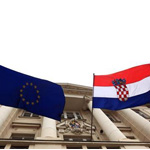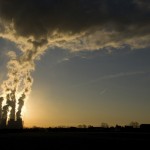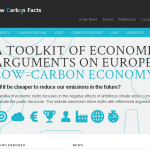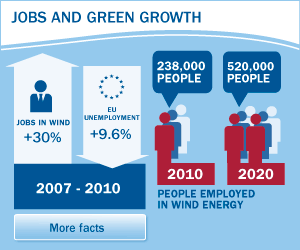 On 1 July Croatia became the 28th member of the EU. The country has started investing in wind power – indeed it is the leader of the western Balkan region, with 193.75 MW of wind turbines in operation at the end of 2012. However a new report underlines that international financial institutions must offer more support for renewables rather than fossil fuels if Croatia and its Balkan neighbours are ever to catch up with the renewable energy capacity of other EU states.
On 1 July Croatia became the 28th member of the EU. The country has started investing in wind power – indeed it is the leader of the western Balkan region, with 193.75 MW of wind turbines in operation at the end of 2012. However a new report underlines that international financial institutions must offer more support for renewables rather than fossil fuels if Croatia and its Balkan neighbours are ever to catch up with the renewable energy capacity of other EU states.
According to the report, Invest in Haste, Repent at leisure, published by civil society organisations CEE Bankwatch Network, SEE Change Net and WWF, Europe’s development banks are spending 32 times more on fossil fuels than on non-hydropower renewable energy sources in the western Balkan region. This trend means that the western Balkan countries are heading in the opposite direction of the EU goals on climate change for the years 2020, 2030 and 2050, says the report.

IEA Executive Director Maria van der Hoeven
A new report from the International Energy Agency (IEA), stating that global power generation from hydro, wind, solar and other renewable sources will exceed that of gas and be twice that of nuclear by 2016, is receiving widespread news coverage.
Renewable power is expected to increase by 40% in the next five years, according to the IEA’s second annual Medium-Term Renewable Energy Market Report launched last Wednesday in New York.
According to the report, renewables are now the fastest-growing power generation sector and will make up almost a quarter of the global power mix by 2018, up from an estimated 20% in 2011.
In addition, the report found that the share of non-hydro sources such as wind, solar, bioenergy and geothermal in total power generation will double, reaching 8% by 2018, up from 4% in 2011 and just 2% in 2006.
“As their costs continue to fall, renewable power sources are increasingly standing on their own merits versus new fossil-fuel generation,” IEA Executive Director Maria van der Hoeven said as she presented the report at the Renewable Energy Finance Forum.
 The world is not on track to reach its goal of limiting global temperature increase to 2°C, warned the International Energy Agency (IEA) on Monday.
The world is not on track to reach its goal of limiting global temperature increase to 2°C, warned the International Energy Agency (IEA) on Monday.
Highlighting the need for intensive action in the energy sector before 2020, the IEA noted that the energy sector accounts for about two-thirds of global greenhouse gas emissions from burning fossil fuels.
“Climate change has quite frankly slipped to the back burner of policy priorities,” Marie van der Hoeven, IEA Executive Director said in a press release that accompanied the London launch of an IEA report, Redrawing the Energy-Climate Map. “But the problem is not going away – quite the opposite.”
“This report shows that the path we are currently on is more likely to result in a temperature increase of between 3.6 °C and 5.3 °C but also finds that much more can be done to tackle energy-sector emissions without jeopardising economic growth, an important concern for many governments,” van der Hoeven said.
 Wind power will be the second biggest contributor to global renewable electricity generation by 2017, according to a ground-breaking report by the International Energy Agency (IEA).
Wind power will be the second biggest contributor to global renewable electricity generation by 2017, according to a ground-breaking report by the International Energy Agency (IEA).
Despite economic uncertainties in many countries, global power generation from renewable sources including wind will increase by more than 40% to almost 6,400 terawatt hours (TWh) – roughly the equivalent of one-and-a-half times current electricity production in the US, predicts the Medium-Term Renewable Energy Market Report 2012.
This is the first time the IEA has devoted a medium-term report to renewable power sources and the agency says this is “a recognition of the dynamic and increasing role of renewable energy in the global power mix”. It forecasts that renewable electricity generation will expand by 1,840 TWh between 2011 and 2017, almost 60% above the 1 160 TWh growth registered between 2005 and 2011.
 Sophie Westlake tells the EWEA blog about a new website that aims to collect as many facts as possible on the benefits of Europe’s climate and energy policies…
Sophie Westlake tells the EWEA blog about a new website that aims to collect as many facts as possible on the benefits of Europe’s climate and energy policies…
Sceptics argue that climate change and sustainable energy policies will damage Europe’s economy, but do you believe delayed action in deploying renewable energy technologies could actually be cheaper in the long-run? Do you really think that climate action is a genuine threat to European jobs?
Well the short answer for me is “not really”… But then you probably want a little more detail than that…
 On 1 July Croatia became the 28th member of the EU. The country has started investing in wind power – indeed it is the leader of the western Balkan region, with 193.75 MW of wind turbines in operation at the end of 2012. However a new report underlines that international financial institutions must offer more support for renewables rather than fossil fuels if Croatia and its Balkan neighbours are ever to catch up with the renewable energy capacity of other EU states.
On 1 July Croatia became the 28th member of the EU. The country has started investing in wind power – indeed it is the leader of the western Balkan region, with 193.75 MW of wind turbines in operation at the end of 2012. However a new report underlines that international financial institutions must offer more support for renewables rather than fossil fuels if Croatia and its Balkan neighbours are ever to catch up with the renewable energy capacity of other EU states.






 Comments
Comments



